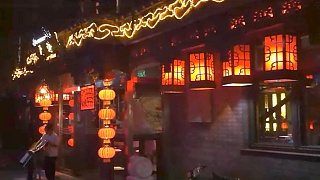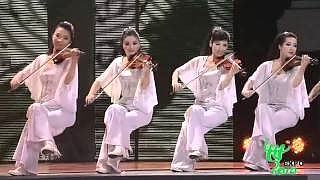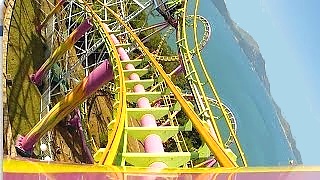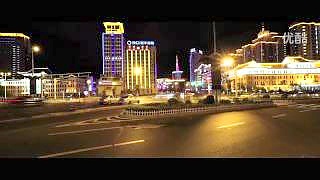
|
Scenic Road Trip Routes from Dali to Lhasa
Route Overview
Traveling from Dali to Lhasa is an epic journey through some of China's most stunning landscapes. Here are two detailed scenic routes with notable stops along the way:
Route 1: Northern Route
Day 1-2: Dali to Lijiang (Approx. 180 km)
Route: Take the G214 National Road north from Dali to Lijiang.
Highlights: Enjoy the scenic views along the way, including Erhai Lake and the ancient town of Lijiang.
Day 3-4: Lijiang to Shangri-La (Zhongdian) (Approx. 180 km)
Route: Continue on G214 National Road north to Shangri-La.
Highlights: Visit Tiger Leaping Gorge and enjoy the views of the Jade Dragon Snow Mountain.
Day 5: Shangri-La to Deqin (Approx. 180 km)
Route: Stay on G214 National Road heading north to Deqin.
Highlights: Explore Songzanlin Monastery in Shangri-La and enjoy the panoramic views of Meili Snow Mountain in Deqin.
Day 6: Deqin to Markam (Approx. 220 km)
Route: Take the G214 National Road, crossing into Tibet and continue to Markam.
Highlights: Pass through the spectacular mountainous regions and along the Mekong River.
Day 7: Markam to Zogang (Approx. 150 km)
Route: From Markam, take the G318 National Road west towards Zogang.
Highlights: Experience the dramatic high-altitude landscapes and valleys.
Day 8: Zogang to Baxoi (Approx. 120 km)
Route: Continue on the G318 National Road from Zogang to Baxoi.
Highlights: Enjoy the rugged and scenic terrain along the way.
Day 9: Baxoi to Ranwu (Approx. 160 km)
Route: Stay on the G318 National Road heading west to Ranwu.
Highlights: Pass by the beautiful Ranwu Lake, known for its clear waters and stunning reflections.
Day 10: Ranwu to Bomi (Approx. 130 km)
Route: Continue on G318 National Road from Ranwu to Bomi.
Highlights: Drive through lush forests and alongside beautiful rivers.
Day 11: Bomi to Nyingchi (Approx. 230 km)
Route: Continue on G318 National Road from Bomi to Nyingchi.
Highlights: Enjoy the lush scenery of Nyingchi, known for its forests and the Niyang River.
Day 12-13: Nyingchi to Lhasa (Approx. 400 km)
Route: Take the G318 National Road west from Nyingchi to Lhasa.
Highlights: Pass through Mila Mountain and follow the Yarlung Tsangpo River Gorge. In Lhasa, explore the Potala Palace, Jokhang Temple, and Barkhor Street.
Route 2: Southern Route
Day 1-2: Dali to Kunming (Approx. 340 km)
Route: Take the G56 Hangrui Expressway east from Dali to Kunming.
Highlights: Kunming, known as the "Spring City," offers attractions like the Stone Forest (Shilin), Dianchi Lake, and Green Lake Park.
Day 3: Kunming to Panzhihua (Approx. 310 km)
Route: Continue on the G56 Hangrui Expressway north to Panzhihua.
Highlights: Panzhihua, a city built around the steel industry, provides access to scenic spots like the Jinsha River and nearby hot springs.
Day 4: Panzhihua to Xichang (Approx. 260 km)
Route: Take the G5 Beijing-Kunming Expressway north to Xichang.
Highlights: Xichang is known for Qionghai Lake and the Luoji Mountain scenic area. It's also a gateway to the Liangshan Yi Autonomous Prefecture.
Day 5: Xichang to Kangding (Approx. 380 km)
Route: Continue on the G5 Beijing-Kunming Expressway, then take the G318 National Road west to Kangding.
Highlights: Kangding is famous for its stunning mountain scenery, including Gongga Mountain (Minya Konka), and the beautiful Mugecuo Scenic Area.
Day 6: Kangding to Litang (Approx. 280 km)
Route: Take the G318 National Road west from Kangding to Litang.
Highlights: Litang, one of the highest towns in the world at 4,014 meters, is known for its Tibetan culture and the Litang Monastery.
Day 7: Litang to Batang (Approx. 160 km)
Route: Continue on the G318 National Road west to Batang.
Highlights: Batang is a charming Tibetan town with picturesque landscapes and rich cultural heritage.
Day 8: Batang to Markam (Approx. 160 km)
Route: Cross into Tibet and stay on the G318 National Road to Markam.
Highlights: Scenic mountain vistas and the Mekong River valley.
Day 9: Markam to Zogang (Approx. 150 km)
Route: Continue on the G318 National Road from Markam to Zogang.
Highlights: Stunning high-altitude terrain and valleys.
Day 10: Zogang to Baxoi (Approx. 120 km)
Route: Stay on the G318 National Road heading west to Baxoi.
Highlights: Enjoy the rugged and scenic terrain along the way.
Day 11: Baxoi to Ranwu (Approx. 160 km)
Route: Continue on the G318 National Road from Baxoi to Ranwu.
Highlights: Pass by the beautiful Ranwu Lake, known for its clear waters and stunning reflections.
Day 12: Ranwu to Bomi (Approx. 130 km)
Route: Continue on G318 National Road from Ranwu to Bomi.
Highlights: Drive through lush forests and alongside beautiful rivers.
Day 13: Bomi to Nyingchi (Approx. 230 km)
Route: Continue on G318 National Road from Bomi to Nyingchi.
Highlights: Enjoy the lush scenery of Nyingchi, known for its forests and the Niyang River.
Day 14: Nyingchi to Lhasa (Approx. 400 km)
Route: Take the G318 National Road west from Nyingchi to Lhasa.
Highlights: Pass through Mila Mountain and follow the Yarlung Tsangpo River Gorge. In Lhasa, explore the Potala Palace, Jokhang Temple, and Barkhor Street.
Tips for the Journey
Permits: Ensure you have the necessary permits to travel in Tibet. Foreign tourists need a Tibet Travel Permit.
Vehicle: A sturdy 4x4 vehicle is recommended due to the rough terrain and high altitudes.
Altitude Sickness: Be prepared for high altitudes. Acclimate gradually and consider medication for altitude sickness.
Weather: Check the weather conditions, especially in winter, as some roads may be impassable.
Supplies: Carry sufficient food, water, and emergency supplies, as some areas are remote with few facilities.
These road trips offers a blend of cultural experiences, breathtaking landscapes, and a sense of adventure, making it one of the most scenic routes in China.
|

 SanYa, HaiNan, walking tour
SanYa, HaiNan, walking tour






